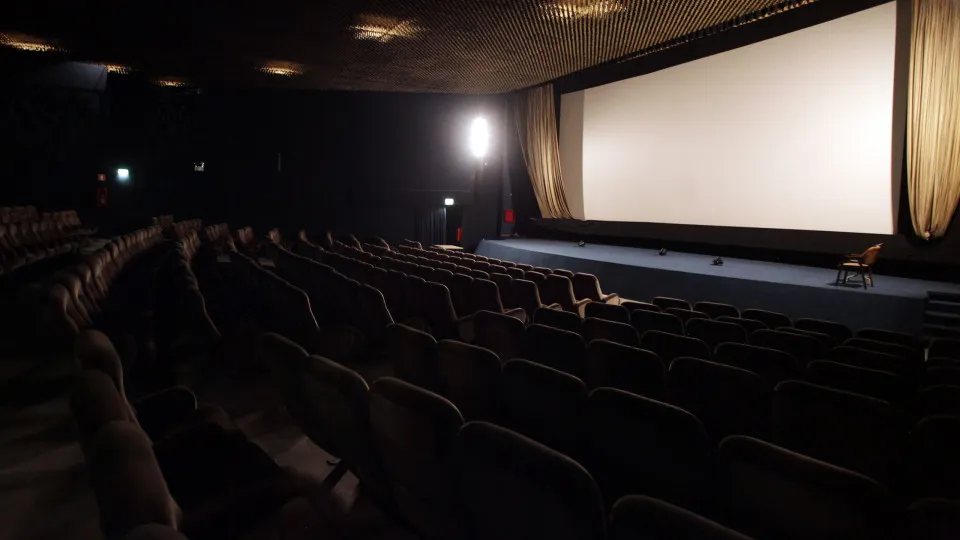
The premiere of ‘Mulheres, Terra, Revolução’ by Rita Calvário and Cecília Honório, and the screening in Portugal of ‘Where the Wind Comes From’ by Tunisian director Amel Guellaty, mark the opening of the festival. This program features 12 Portuguese productions, as announced by the cultural association Olhares do Mediterrâneo.
‘Guardadoras de Histórias, Guardiãs da Palavra’ by Raquel Freire, in which writers from the Afro-Luso-Brazilian world discuss creation, memories, literary and cultural resistances, along with ‘The Brink of Dreams’ by Egyptian duo Nada Riyadh and Ayman El Amir, recognized as the best documentary at the 2024 Cannes Film Festival, are among the offerings.
This year’s festival, running until November 6 across six venues in Lisbon, addresses topics such as environmental issues, sexual harassment and gender violence, the Israeli occupation of Palestine, the fight for Sahrawi women’s independence, stories of Kurdish and Yazidi women, refugees and forced migrations, racism, and colonialism. Venues include Cinema São Jorge, Cinemateca Portuguesa, Museu do Aljube, Casa do Comum, ISCTE-University Institute of Lisbon, and Goethe-Institut.
With this 12th edition extending to 10 days, two more than last year, the Olhares do Mediterrâneo – Women’s Film Festival showcases 33 national premieres, four world premieres, three European premieres, and an international premiere, totaling 41 films unseen in Portugal. The global program encompasses documentaries, fiction, animation, and experimental cinema to highlight stories told by women from Southern Europe, North Africa, and the Middle East, providing diverse themes and styles, and focusing on non-stereotypical narratives.
“The world is ablaze, both metaphorically and literally, making it ever more relevant to feature films that open our eyes, provoke thought, and spur action,” states the festival’s female organizing collective.
Museu do Aljube will host the first session with the documentary ‘Mulheres, Terra, Revolução’, and the associated debate on October 28, while the official opening session is slated for October 30 at Cinema São Jorge with ‘Where the Wind Comes From’, Amel Guellaty’s debut feature, previously showcased at the Sundance and Rotterdam festivals.
The film, a journey across Tunisia in “a quest for freedom,” borrows its title from a poem by A.A. Milne, creator of Winnie-the-Pooh, reflecting the director’s desire to portray “a youth plagued by unemployment, inadequate infrastructure, and culture, regarding emigration as the sole solution,” yet aims for a comedic rather than sombre narrative, seeking “lightness in times of despair.”
At the Cinemateca Portuguesa, from November 3 to 6, four films by Bosnian filmmaker Jasmila Zbanic and Serbian director Mirjana Karanovic will be shown, focusing on violence and genocides from the Yugoslav Civil War (1991-2001) and their lasting impact. The two filmmakers, who will be present in Lisbon, have collaborated on the featured works: ‘Esma’s Secret’, starring Mirjana Karanovic and winner of the Golden Bear at the Berlin Film Festival in 2006, ‘On The Path’ (2010), and ‘Quo Vadis, Aida?’ (2020) by Jasmila Zbanic; and ‘A Good Wife’ (2016) by Karanovic, produced by Zbanic.
The festival’s four competitive sections will spotlight 53 films, including Portuguese entries ‘Mulheres, Terra, Revolução’ by Rita Calvário and Cecília Honório and ‘Isto não é um Jardim’ by Marta Pessoa in the feature film category; and in the short film category, ‘Amanhã Não Dão Chuva’ by Maria Trigo Teixeira, ‘As Minhas Sensações São Tudo o Que Tenho Para Oferecer’ by Isadora Neves Marques, ‘Há Ouro em Todo o Lado’ by Rita Morais, and ‘O Jardim em Movimento’ by Inês Lima.
The Special Section Travessias, focusing on migration, racism, and colonialism, includes titles like ‘My Sweet Land’ by Sareen Hairabedian, a US-based filmmaker, ‘Palestine Islands’, a French production by Nour Ben Salem and Julien Menanteau, and ‘This Home is Ours’ by Palestinian Shayma’ Awawdeh.
The Competição Começar a Olhar, dedicated to school films, features 13 productions, with five Portuguese entries by Ainá Xisto, Carolina Vaz Rebelo, Irina Oliveira, Marina Schneider, and Luísa Villas-Boas.
The competitive sections will close with the screening of ‘O Homem de Argila’ (‘The Dreamer’) by French director Anaïs Tellenne, selected for the Venice Festival and named Best Film of 2024 by the Union of French Film Critics.
The Olhares do Mediterrâneo program also includes “family sessions” with films for younger audiences, post-screening debates, and workshops.
“What drives our programming and work,” the organizers state in the festival presentation, “is the unwavering belief in the value of creating culture, making independent films,” and gathering people in a cinema to reflect “on the existing world and the world we desire, against the rising tide of international fascism and increasing limitations on freedom of expression and critical thinking.”
The festival is an initiative of Olhares do Mediterrâneo – Associação Cultural in collaboration with CRIA – Center for Research in Anthropology.




